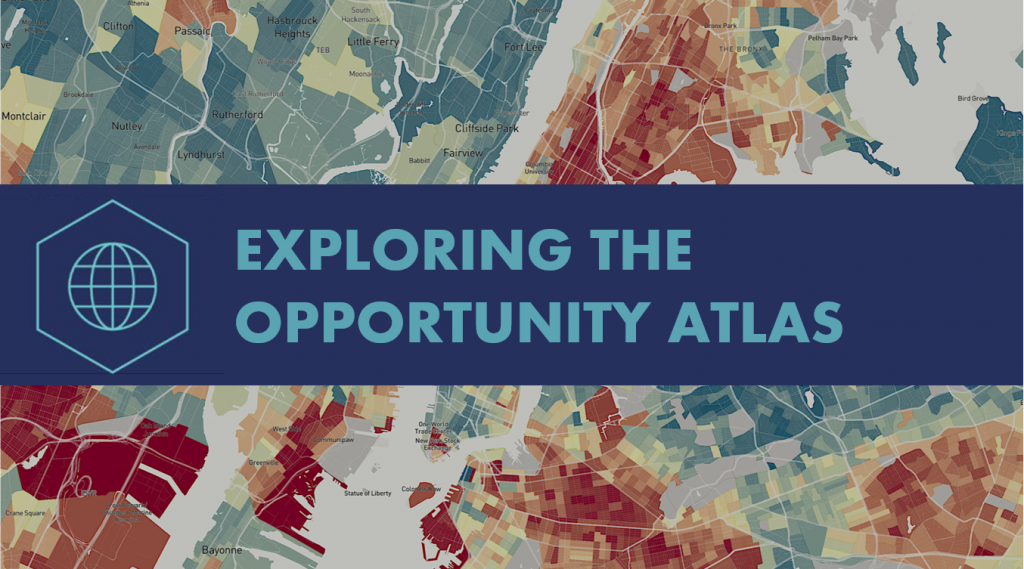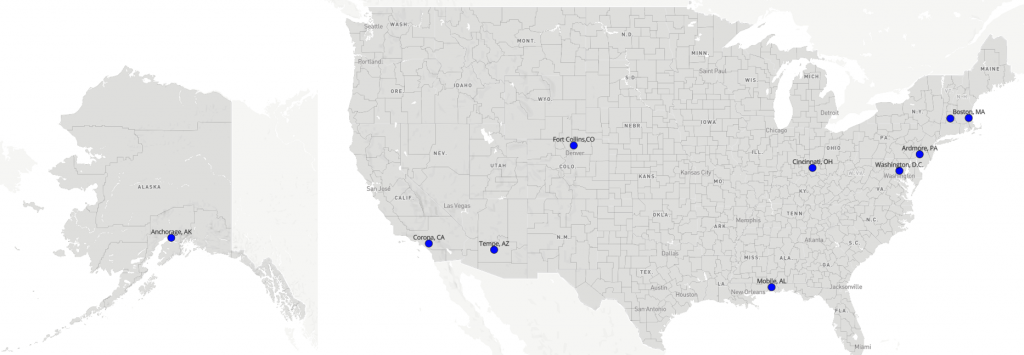
In Spring of 2021, at the tail of COVID-related isolation, Opportunity Insights launched an online learning opportunity in partnership with What Works Cities called “Exploring the Opportunity Atlas.” Hosted on the GovEx Academy, an accessible online platform managed by Johns Hopkins’ Centers for Civic Impact, this four week opportunity invited city leaders, staff, and community members to come together virtually to learn how to leverage the data contained in the Opportunity Atlas. By the end of the sprint, over a dozen participants from across the United States jumped into the tool to critically explore economic mobility in America and how they can use the Opportunity Atlas to tell the story of their communities.
The sprint course specifically covered how data from the Opportunity Atlas are sourced and interpreted, how to download and customize local maps, and how anyone can leverage these data to help inform policies and decision-making in their own communities. Economic research shows the impact of neighborhoods throughout the United States on the long-term outcomes of children who grow up in them. The Opportunity Atlas combines information around parents’ and children’s incomes across generations with neighborhood data to explore which factors are influencing the economic mobility of American children. The course was designed to help participants learn together, and from one another, as they explore the Atlas to identify economic mobility trends within their communities. Course participants represented a wide range of vocations and stakeholders — city government workers, nonprofit organization staff, graduate students, and researchers — and hailed from geographies across the United States — everywhere from Alaska to New Jersey.

Course participants came from a wide range of cities, towns, and rural communities across the United States.
The Opportunity Atlas has a history of supporting cities in designing programs to move economic mobility levers. “Cities and local community stakeholders are using the Opportunity Atlas data to understand differences in economic mobility outcomes,” shared Maia Jachimowicz Vice President for Evidence-Based Policy Implementation for Results for America and director of the What Works Cities’ Economic Mobility Initiative. “For example, in working with Racine, WI as part of the What Works Cities Economic Mobility initiative, we see that children that grew up in more historically red-lined neighborhoods have lower economic mobility outcomes as adults, compared to the outcomes of other low-income children nationally. This data caused us to dig deeper into which neighborhood investments could lead to better mobility outcomes in Racine, helping us focus on high school equivalency degree programs.”
As participants started to explore the various tools and data components within the Opportunity Atlas, they began to build portfolios of customized maps that gave them greater insight into the patterns at play within their own communities. Whereas some participants were more focused on affordable housing, others on employment programs or higher education, others on racial equity, all participants shared an interest in learning how to make their communities more equitable and data-driven. Sara Maranowicz, Program Manager at the Bohemian Foundation and participant in the sprint, said, “I was aware of the Opportunity Atlas before, but… ignored it because I didn’t have the time to figure it out. This step-by-step process is really valuable.” Emily Johnson, a Program Manager at the Office of Planning for DC echoed this sentiment, sharing, these video Modules “really honed the ways to use the Opportunity Atlas,” by walking her through its various bells and whistles.
Moving Forward
The Modules and Tutorial videos that were used in this course are now publicly available on the Opportunity Insights website for anyone who shares an interest in learning more about the Atlas and how to advance economic mobility in their community. All content is tailored to policymakers’ and practitioners’ needs, with an emphasis on practical applications. Anyone interested in learning more about the Opportunity Atlas, economic mobility in their community, or using the data underlying the Atlas to inform their work, is encouraged to explore these resources for themselves.